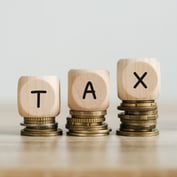.jpg) In late summer we learned that the “Great Recession” lasted from December 2007 through June 2009. Lasting a full 18 months, it has been the longest downturn since the Great Depression. Most agree that the jury is still out on whether or not there will be a part two.
In late summer we learned that the “Great Recession” lasted from December 2007 through June 2009. Lasting a full 18 months, it has been the longest downturn since the Great Depression. Most agree that the jury is still out on whether or not there will be a part two.
What is clear is that boomers, like most consumers, have moved to a new place when it comes to spending money. Thanks to our partnership with BIGresearch and their “Consumer Intentions and Actions” study, each month over the last three years we have been monitoring the attitudes of boomers on a variety of spending and money issues. The first week of each month, BIG fields a huge survey among a representative panel of consumers, ages 18 to 80, asking all sorts of questions about where they shop, what they buy and what they plan to do next.
One such question is about behavior: “Over the last six months, have you made any of the following changes?” The simple “yes” or “no” vote gets tallied and month after month we can determine trends.
Three changes are about spending money:
- I have become more practical and realistic in my purchases … yes or no
- I have become more budget conscious … yes or no
- I focus more on what I NEED rather than what I WANT … yes or no (emphasis NOT added)
The higher the score, the more fiscally responsible or conservative consumers are. The lower the score, the more free-spending and loose consumers are. Up is bad; down is good. Here’s the chart since September 2007, months before the great recession’s official start through last September.








 November 30, 2010 at 07:00 PM
November 30, 2010 at 07:00 PM










